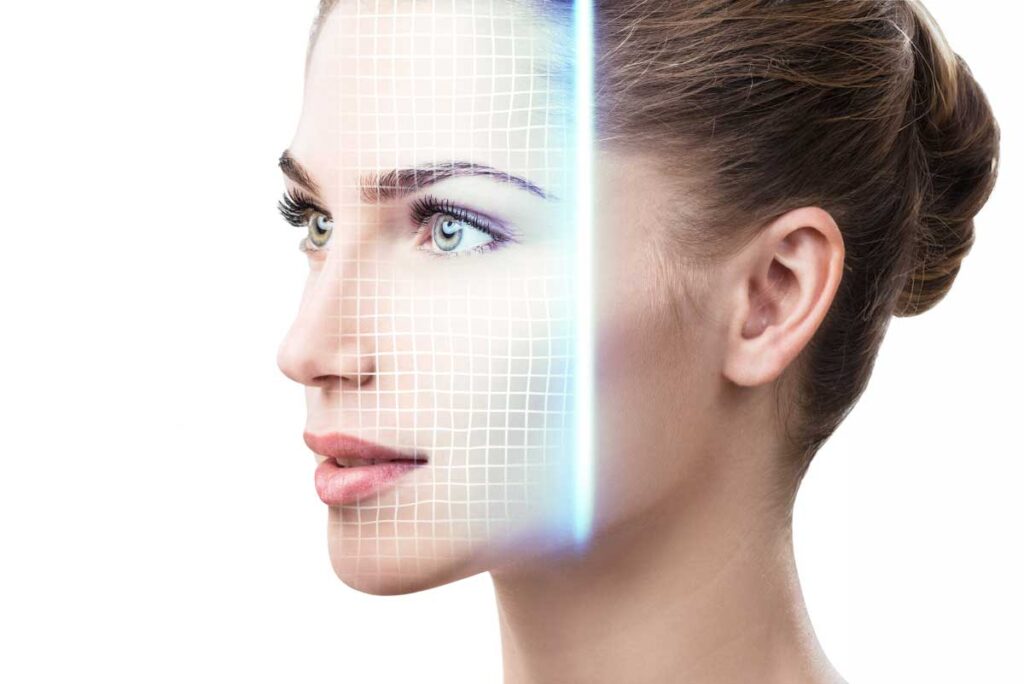In our digital age, screens and devices have become an integral part of our daily lives. Whether it’s our smartphones, computers, or tablets, we’re constantly exposed to blue light emitted by these devices. While blue light has its benefits, such as regulating our circadian rhythms, its impact on our skin has raised concerns. In this article, we’ll explore the effects of blue light on the skin and provide practical tips on how to protect your skin from its potential harm.
Understanding Blue Light
Blue light is a high-energy, short-wavelength light that is emitted by the sun, as well as electronic screens and LED lighting. It plays a crucial role in regulating our sleep-wake cycle, but excessive exposure, especially from digital devices, can have consequences for our skin.
The Impact on Skin
- Premature Aging: Prolonged exposure to blue light may accelerate skin aging. It can lead to the breakdown of collagen and elastin, the proteins responsible for skin’s firmness and elasticity. This can result in the formation of fine lines, wrinkles, and sagging skin.
- Hyperpigmentation: Blue light can trigger the production of melanin, leading to an increased risk of hyperpigmentation, including dark spots and uneven skin tone.
- Inflammation: Blue light exposure can cause skin inflammation, potentially exacerbating conditions like acne and rosacea.
- DNA Damage: Recent research suggests that blue light may cause DNA damage in skin cells, which can contribute to skin aging and increase the risk of skin cancer.
Protecting Your Skin
Protecting your skin from the effects of blue light is essential in the digital age. Here’s how:
- Use Screen Filters: Consider using blue light screen filters or applications that reduce the intensity of blue light emitted by your devices. These filters can be applied to your smartphone, tablet, and computer screens.
- Take Breaks: Practice the 20-20-20 rule: every 20 minutes, take a 20-second break, and look at something 20 feet away. This can reduce the strain on your eyes and limit blue light exposure.
- Wear Blue Light Blocking Glasses: Specialized glasses with blue light-blocking coatings can reduce the amount of blue light that reaches your eyes and, by extension, your skin.
- Antioxidant Skincare: Incorporate skincare products with antioxidants like vitamin C and vitamin E into your routine. These can help neutralize free radicals generated by blue light.
- Sunscreen: Don’t forget sunscreen, even when indoors. Some sunscreens also provide protection against blue light.
- Balanced Screen Time: Limit your screen time, especially before bedtime, to support healthy sleep patterns.
- Adjust Screen Settings: Reduce the brightness and color temperature of your screens in the evening to reduce blue light exposure before sleep.
- Use Night Mode: Many devices have a night mode that reduces blue light emission during evening hours. Enable this feature to minimize exposure.
- Hydration: Keep your skin well-hydrated with moisturizers containing ingredients like hyaluronic acid to support its natural barrier function.
While blue light is an integral part of our digital lives, it’s crucial to be aware of its potential impact on our skin. By taking proactive steps to reduce blue light exposure and incorporating protective measures into your skincare routine, you can help safeguard your skin’s health in the digital age.
Iskra Banović is our seasoned Editor-in-Chief at Blufashion. She has been steering the website’s content and editorial direction since 2018. With a rich background in fashion design, Iskra’s expertise spans across fashion, interior design, beauty, lifestyle, travel, and culture.





